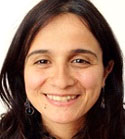
By Joyce Karam
23 July 2015
In the last four years, the Barack Obama administration has consistently played up the prospects of a political solution in Syria while the reality on the ground, in the region and vis-a-vis Russia pointed in the direction of a stalemate. The Geneva 1 and Geneva 2 processes along with the envoy-ship of former U.N. Secretary General Kofi Annan and the stellar Arab diplomat Lakhdar Brahimi all yielded no results, and the current mission of U.N. envoy Staffan De Mistura does not hold more promise.
Today, there is renewed talk from the White House about a political process following the nuclear agreement with Iran and a more “open” Russian position. Hope springs eternal in public diplomacy, though in Syria neither the conditions on the ground nor the positions of the main players are conducive for a political settlement.
Waiting for Russia
In his interview with Tom Friedman of “The New York Times” and later on in his press conference on the Iran deal, President Barack Obama spoke of a change in the Russian position on Syria, and new willingness on Washington’s part to bring Iran to the table.
Obama told Friedman: “I was encouraged by the fact that (Russian President) Mr. Putin called me a couple of weeks ago and initiated the call to talk about Syria.” He referenced a new recognition from the Kremlin that “the Assad regime is losing a grip over greater and greater swathes of territory inside of Syria and that the prospects for a takeover or rout of the Syrian regime is not imminent but becomes a greater threat by the day.” A day later, the U.S. President called for “a process to resolve the civil war in Syria”, noting the importance of including Iran in such "conversation.”
Obama’s hopeful diplomatic tone aside, there is little or no indication from Syria that a political solution is in the horizon. Western diplomatic sources tell me that there is “no substantial shift in Russia’s position” except “for their willingness to have a conversation on Syria prompted by their increased fear of Chechnian recruits and returnees from Jihadist groups (including ISIS).” When it comes to discussing a new power structure in Syria, however, the Russian leadership is not giving up on its deep rooted influence within the Assad regime. “They want everyone to come to their side and fight terrorism without agreeing to a bigger set of changes in the regime in Syria” says one diplomat.
Deep Regional Split
The conversation with Iran, on the other hand, holds even lower prospects in light of a much deeper divide and higher sense of anxiety between Iran and the regional neighbors. Following the nuclear deal, higher metrics are being drawn regionally by the major players and those apply to Syria. At the Camp David summit last May, key Arab participants told the U.S. President that accepting a Hezbollah and Iran dominated Syria is a redline for the GCC states.
While there was willingness to work with elements in the Assad regime and Russia towards a political settlement, countering Iran’s military role in Syria was communicated at the highest levels by key GCC representatives to Obama. While there were also differences among the GCC countries on what to do next in Syria, the participants agreed on countering Iran’s role in war-ravaged Syria. An Arab diplomat tells me that following the nuclear agreement, “there is even more commitment on our part to push against Iran and Hezbollah in Syria.” While a U.S. conversation with Tehran could help in starting a process and creating diplomatic space, reconciling regional differences is not foreseeable in the near future in Syria.
Gloomy Forecast
As the regional split widens and Iran gains more influence inside the Assad regime, the next phase in Syria will be a replay of the one before, with each side trying to change the battle lines. Unless these lines are reshaped dramatically in the major cities, or both sides are exhausted, a political solution remains out of sight.
Even if the U.S. throws its weight behind a diplomatic process, the battle lines inside Syria give Washington little leverage in steering the conflict. It is regional players, including Qatar, Saudi Arabia, Turkey and Iran who have the most influence inside Syria today and the likelihood of them reaching consensus is lower than it ever was in the last four years. The Assad regime for its part feels buoyed by the Iran nuclear deal, which could extend a much needed financial line to his troops and Hezbollah. This will be met by a bigger push from the Arab countries and Turkey to throw more support behind the rebels.
The U.S. and Western partners are privately not betting on a political settlement in Syria anytime soon, and are instead choosing alternatives that would grant them more leverage in the battlefield and focus on fighting ISIS. Hence, the Train and Equip program is designed to gradually deploy U.S. trained rebels in the field to fight ISIS. While the initial number of these fighters deployed is small, it is expected that it would increase quarterly and that these rebels would “blend in” with bigger groups.
For now, the statements on a diplomatic solution in Syria should be taken for what they are worth: a saving face tactic to cover up failure in stopping the bloodshed and the agony of millions in the last four years.
Joyce Karam is the Washington Correspondent for Al-Hayat Newspaper, an International Arabic Daily based in London. She has covered American politics extensively since 2004 with focus on U.S. policy towards the Middle East. Prior to that, she worked as a Journalist in Lebanon, covering the Post-war situation. Joyce holds a B.A. in Journalism and an M.A. in International Peace and Conflict Resolution.
Source: https://english.alarabiya.net/en/views/2015/07/23/A-Syria-breakthrough-Don-t-hold-your-breath.html




 Moderate Islamist here
Moderate Islamist here


0 comments:
Post a Comment